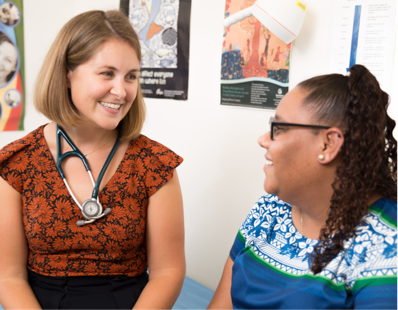From the Top End to Tasmania, ACRRM’s GP training has rural Australia covered
There is just one week remaining before applications close for Australian General Practice training in 2019. The Australian College of Rural and Remote Medicine (ACRRM) is urging doctors who wish to become General Practitioners to apply now.
ACRRM is one of only two Colleges accredited to offer GP training on behalf of the Australian Government’s Australian General Practice Training (AGPT) Program.*
“Being a doctor in rural and remote Australia is an extremely rewarding career” ACRRM President, Associate Professor Ruth Stewart, said.
“The variety of clinical work is immensely interesting, and the close connection to your local healthcare team — and your community and patients — is very fulfilling.
“We are extremely proud of the breadth and quality of clinical skills training that our curriculum sets for the GP Registrars on our training program.
“Our rigorous program delivers Rural Generalist doctors who can confidently meet the challenges of working in rural and remote communities across Australia.
“Our curriculum has been developed over many years by highly experienced rural and remote doctors, and it reflects the broad nature of Rural Generalist practice — which can include a mix of General Practice, Emergency Medicine, other hospital-based work and much more.
“Our curriculum is very portable — it sets you up to practise confidently anywhere in the world.
“ACRRM Fellows not only find jobs as Rural Generalist doctors across Australia — they work across the globe in GP clinics and hospitals, in developing countries, Aboriginal Health Services, in Antarctica, with NASA, the Royal Flying Doctor Service and the Australian Defence Force.
“Our curriculum is substantial and practical. It is flexible and responsive to our Registrars’ needs.
“Our Registrars can ‘choose their own adventure’ and train in the skills that suit them and their communities.
“We offer advanced specialised training in 11 skills areas — from procedural skills like Anaesthetics, Obstetrics, Surgery and Emergency Medicine, to non-procedural skills like Mental Health, Aboriginal and Torres Strait Islander Health, Paediatrics, Internal Medicine, Palliative Medicine and Public Health.
“We are genuinely interested in where our Registrars want to go with their career, and how we can help.
“Our College is highly professional but, just like rural doctors, we are also welcoming and supportive.
“We strongly encourage doctors seeking to undertake GP training in 2019 to join our program.”
There are GP Registrars on the ACRRM training pathway located right across rural and remote Australia. Here are just a few of them (click on the links to read their stories): Dr Tom Battisson (Monto, Qld) and Dr Allison Hempenstall (Thursday Island, Qld) Dr Bethany Jibson (Palm Island, Qld) and Dr Lachlan Mackinnon (Loxton, SA) Dr Tarun Patel (Katherine, NT) Dr Georgina Mills (Kangaroo Island, SA) Dr Louisa Tatton (Launceston, Tas) and Dr Antoun Boulos (George Town, Tas) Dr Emma Jones (Kalgoorlie, WA) Dr Geraldo Guimaraes (Biggenden, Qld).
The application period for Australian General Practice Training (2019 intake) closes on 30 April 2018. To find out more about undertaking GP training via the ACRRM training pathway visit acrrm.org.au/agpt.
* To be accredited to work as a GP in Australia, doctors must first undertake a significant period of training as a GP Registrar, as part of the Australian General Practice Training (AGPT) program. This includes working in General Practice under the supervision of an experienced GP, while also undertaking formal training via The Australian College of Rural and Remote Medicine (ACRRM) or the Royal Australian College of General Practitioners (RACGP). Undertaking GP training through ACRRM leads to Fellowship of ACRRM (a ‘FACRRM’) — one of only two specialist General Practice qualifications in Australia.


